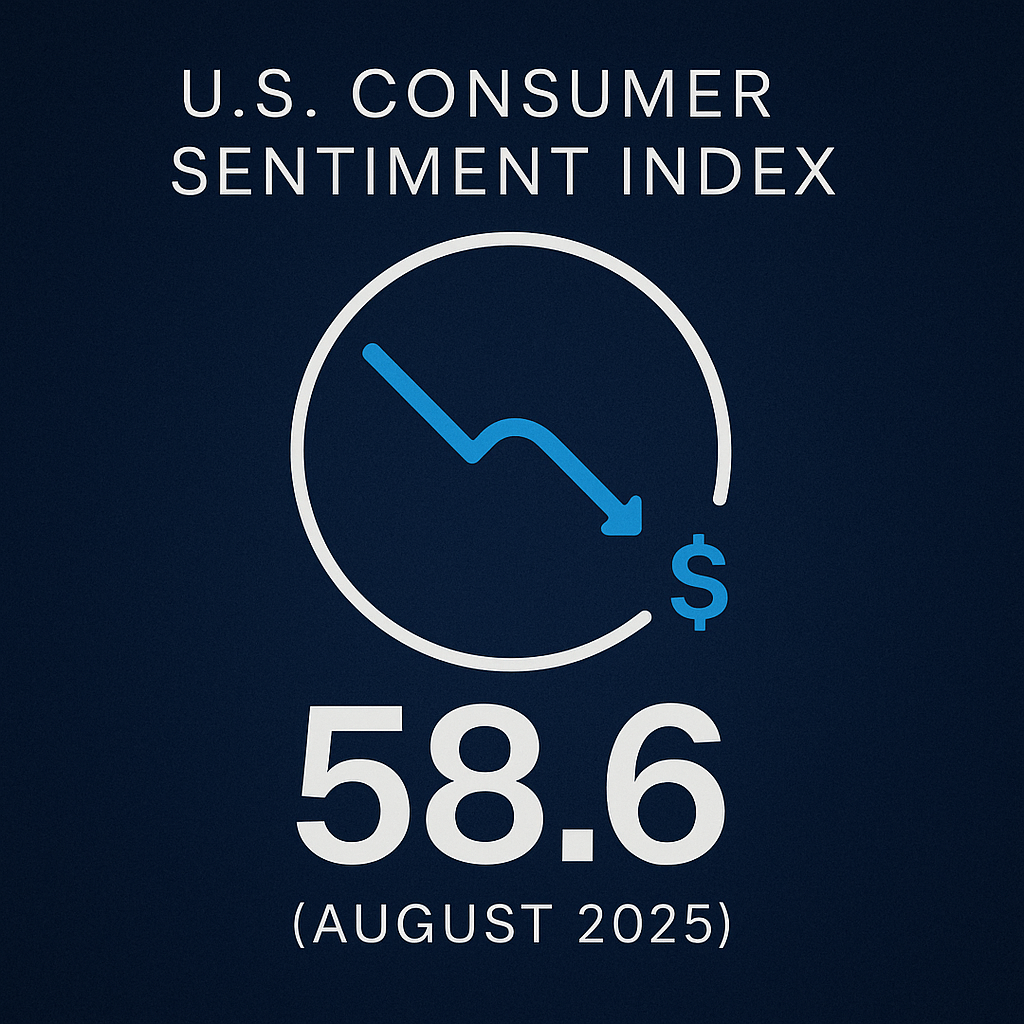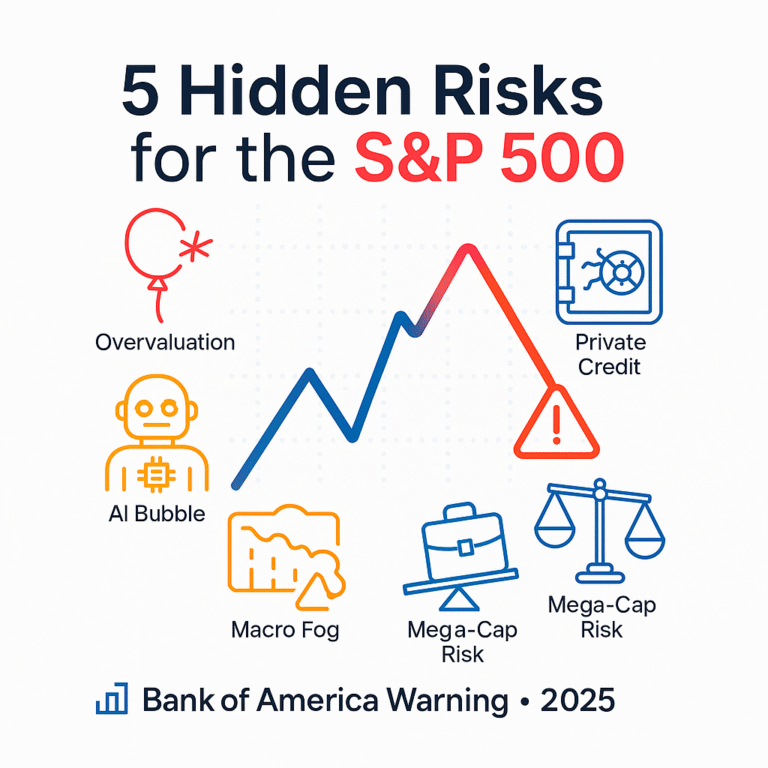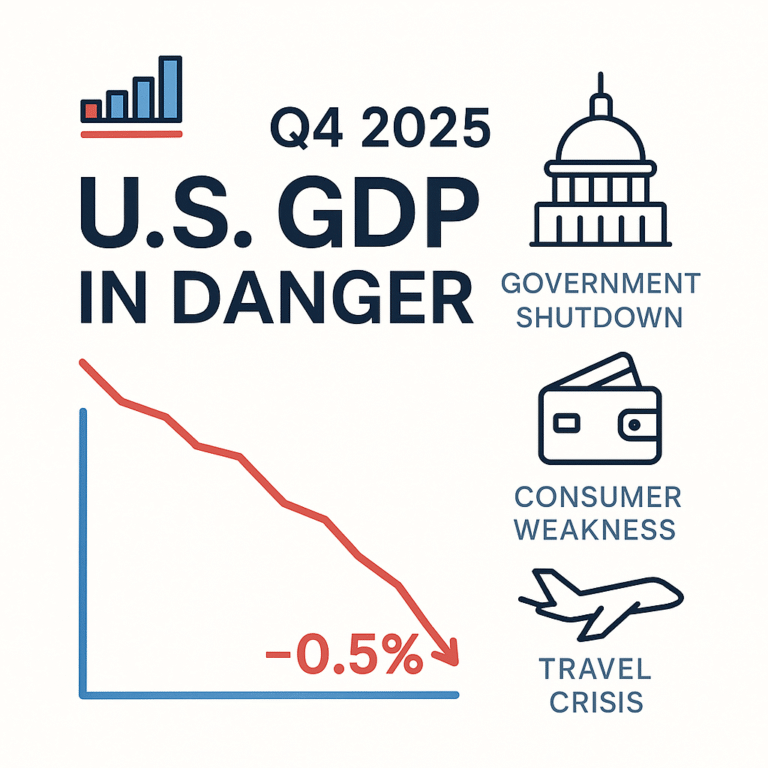U.S. Consumer Sentiment Index Drops to 58.6 in August 2025 – Full Data Breakdown
The U.S. Consumer Sentiment Index fell to 58.6 in August 2025, down from 61.7 in July. Explore detailed data on current conditions, expectations, and inflation outlook.
Key Takeaways
Why the August CSI Decline Matters
In August 2025, the U.S. Consumer Sentiment Index (CSI) recorded 58.6, falling from 61.7 in July. This marks the first decline in four months and highlights growing concerns over inflation. The CSI, compiled monthly by the University of Michigan’s Surveys of Consumers, reflects how households view both current economic conditions and their future outlook.
Recent CSI Trends and August Results Explained
The University of Michigan survey reported that consumer sentiment dropped by 5% month-over-month and by more than 13% compared with August 2024 (Reuters coverage)
Breaking down the components:
- Current Economic Conditions Index came in at 60.9, more than 10% lower than July’s 68.0.
- Index of Consumer Expectations registered at 57.2, slipping slightly from 57.7.
The simultaneous decline of both indicators underscores weaker confidence in both present conditions and future expectations.
A Closer Look at the August 2025 CSI Data
|
Index |
Aug 2025 |
Jul 2025 |
Aug 2024 |
M/M Change |
Y/Y Change |
|---|---|---|---|---|---|
|
Consumer Sentiment Index |
58.6 |
61.7 |
67.9 |
–5.0% |
–13.7% |
|
Current Economic Conditions |
60.9 |
68.0 |
61.3 |
–10.4% |
–0.7% |
|
Consumer Expectations |
57.2 |
57.7 |
72.1 |
–0.9% |
–20.7% |
The data shows that long-term expectations have deteriorated more sharply than short-term perceptions, reflecting ongoing uncertainty about economic stability.
Expert Insights: Inflation Concerns Drive the Decline
Experts widely attribute the decline in consumer sentiment to rising inflation expectations. Joanne Hsu, director of the Michigan survey, noted that “concerns about inflation have weighed heavily on consumer attitudes this month.”
Reuters reported that durable goods purchasing conditions fell to their lowest point in a year, suggesting that households are increasingly reluctant to commit to major spending. Investopedia also highlighted that more consumers are considering early purchases to avoid future price increases—evidence that inflation fears are shaping real behavior.
Rising Inflation Expectations as a Key Signal
The survey showed short-term (1-year) inflation expectations at 4.9%, up from 4.4% in July. Long-term (5-year) expectations also rose to 3.9%, compared with 3.3% previously.
This upward shift indicates that households anticipate continued price pressures. Interestingly, this sentiment contrasts with recent “hard data”: while July retail sales rose by 0.5%, consumer confidence moved in the opposite direction. This gap suggests that while spending has not yet slowed, concerns about the future are intensifying.
What to Watch Next – Upcoming Data Releases
The current CSI reading is preliminary, with the final August figure scheduled for release on August 29, 2025. Future indicators such as the Consumer Price Index (CPI), labor market data, and tariff policies under the Trump administration will likely influence sentiment further.
Michigan survey data also revealed that nearly 30% of respondents intend to make purchases earlier than planned to avoid future price hikes. This behavior illustrates how inflation expectations can accelerate demand in the short term while heightening long-term risks.
Key Takeaways from August CSI Data
The August 2025 Consumer Sentiment Index, at 58.6, highlights growing consumer unease. Both current conditions and expectations indices declined, while inflation expectations rose significantly. Together, these shifts signal that while spending has not yet collapsed, confidence is under pressure.
Monitoring the final August release and upcoming macroeconomic indicators will be essential to understand whether this marks a temporary dip or the start of a longer downturn.







